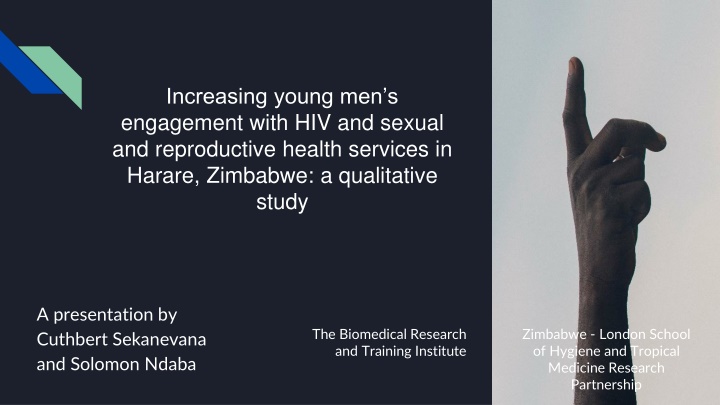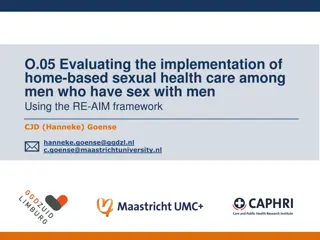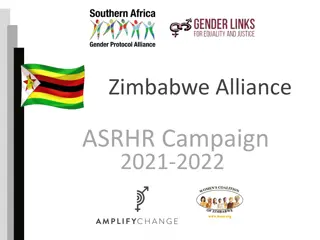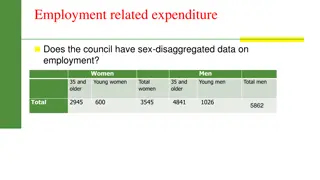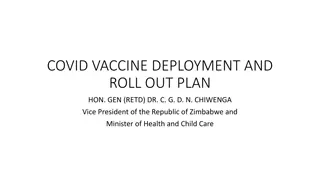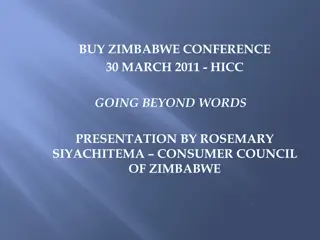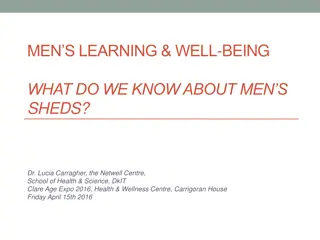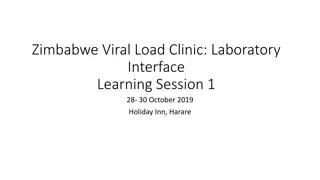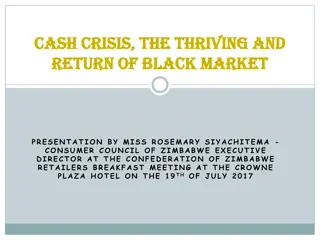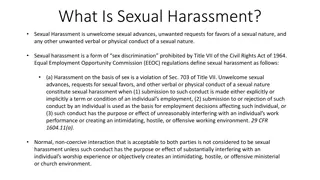Men's Engagement with Sexual Health in Harare, Zimbabwe
A qualitative study explores reasons for lower engagement of young men with sexual and reproductive health services in Harare, Zimbabwe. Barriers include peer pressure, dissatisfaction with condoms, myths about VMMC, and lack of knowledge about available services.
Download Presentation

Please find below an Image/Link to download the presentation.
The content on the website is provided AS IS for your information and personal use only. It may not be sold, licensed, or shared on other websites without obtaining consent from the author.If you encounter any issues during the download, it is possible that the publisher has removed the file from their server.
You are allowed to download the files provided on this website for personal or commercial use, subject to the condition that they are used lawfully. All files are the property of their respective owners.
The content on the website is provided AS IS for your information and personal use only. It may not be sold, licensed, or shared on other websites without obtaining consent from the author.
E N D
Presentation Transcript
Increasing young mens engagement with HIV and sexual and reproductive health services in Harare, Zimbabwe: a qualitative study A presentation by Cuthbert Sekanevana and Solomon Ndaba The Biomedical Research and Training Institute Zimbabwe - London School of Hygiene and Tropical Medicine Research Partnership
Background CHIEDZA is a community-based cluster-randomized trial providing SRH services to young people aged 16 24 years old Data from CHIEDZA showed lower engagement with SRH services for young men compared to young women We asked the following research questions: Why are men not engaging with the health care services, what are the barriers? What are possible solutions to these challenges?
AIMS To increase men s engagement with the health care services To make the various services available (apart from HIV testing) known To promote the uptake of SRH services available at CHIEDZA
5 focus group discussions (service provider x 1, participants receiving x 2 and not receiving CHIEDZA services x 2) 5 in-depth interviews 1 participatory workshop
Peer pressure prevents male youths in accessing sexual health services Quote: I think for those already tested and know their status; they don t want people to know that they are taking medication. They know that if I go for services, people will easily see that I am visiting clinic more often , so they then decide not to go. Dissatisfaction with certain condom brands Myth and miss conception surrounding VMMC Lack of knowledge about services available at CHIEDZA e.g. HIV testing, cancer screening, VMMC and many more. Concept of masculinity
Limitations Inability to get police clearance for some areas that we wanted to work Some young men did not turn up on the day of interview Some participants would walk out before the interview ended Some participants may have given the wrong age.
Conclusion Socio-economic, cultural and religious factors affects young man engagement with SRH services.
Recommendations Provision of good quality flavoured condoms in the national program Support comprehensive sexuality education in school Development of youth friendly clinic Identifying champions within the community to mobilise young men Providing a package of services that does not reveal the reason for attendance (multi-use facilities)
